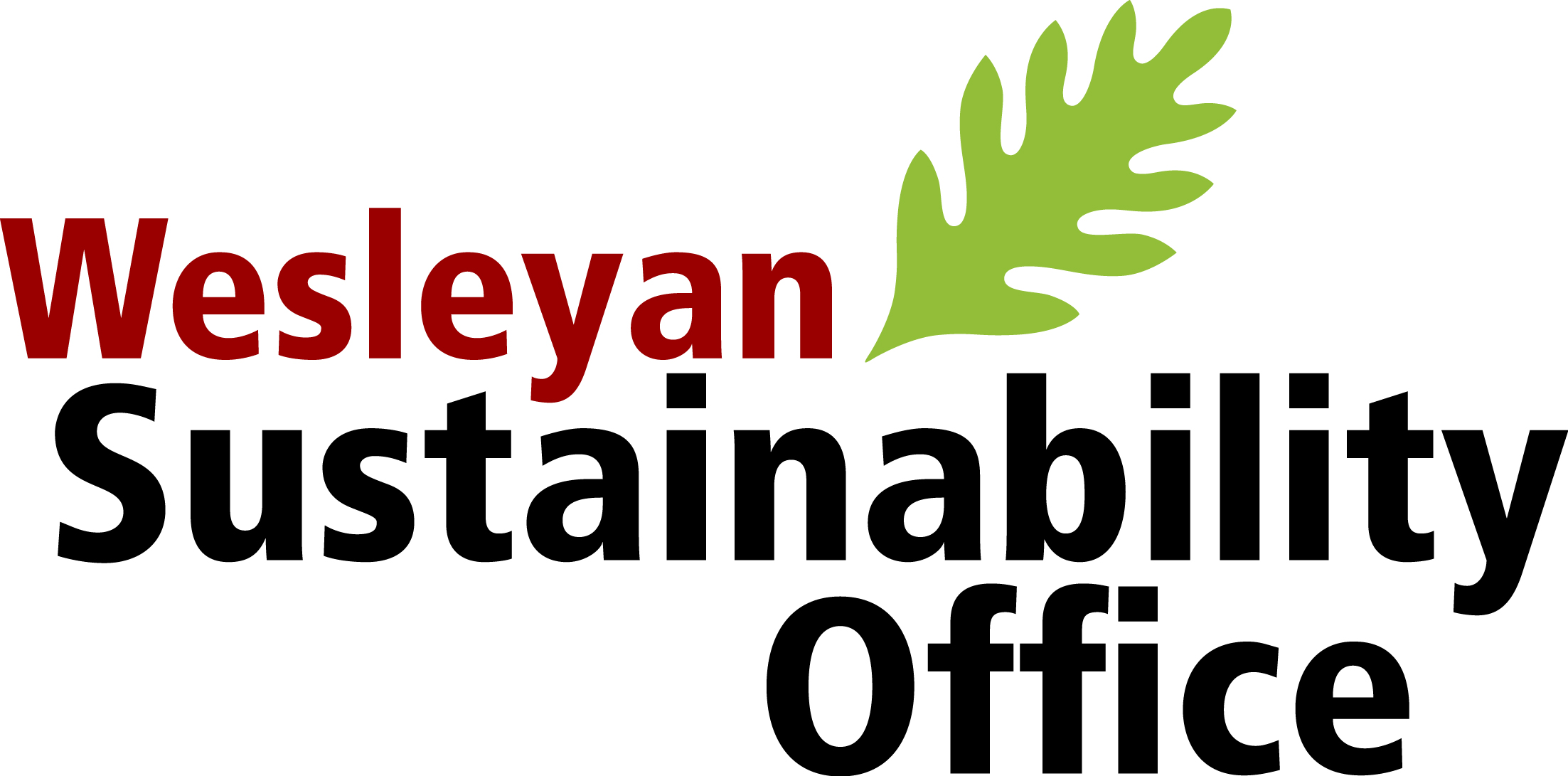Sustainability Strategic Plan (SSP)
Wesleyan University is committed to building a sustainable planet. Climate change and a rapidly changing world provide us with the impetus to take greater steps toward a sustainable future. We seek to be an institution on the forefront of sustainable change, one that promotes environmental and social sustainability in everything that we do. Sustainability is not an end goal, but an ongoing process.
Wesleyan adopted the Sustainability Strategic Plan (SSP) (accessible version here) in May 2022, which builds on the lessons learned from the 2016-2021 Sustainability Action Plan (SAP). The SSP builds a roadmap toward a sustainable future by establishing broad goals and objectives over the coming decades in the areas of carbon neutrality, curricular integration, and engagement of our Wesleyan and Middletown communities.
Annual Reports
We are proud to share the progress made in the third year since the 2022 implementation of the Sustainability Strategic Plan! Annual reports for this year and previous years are available below.
Carbon
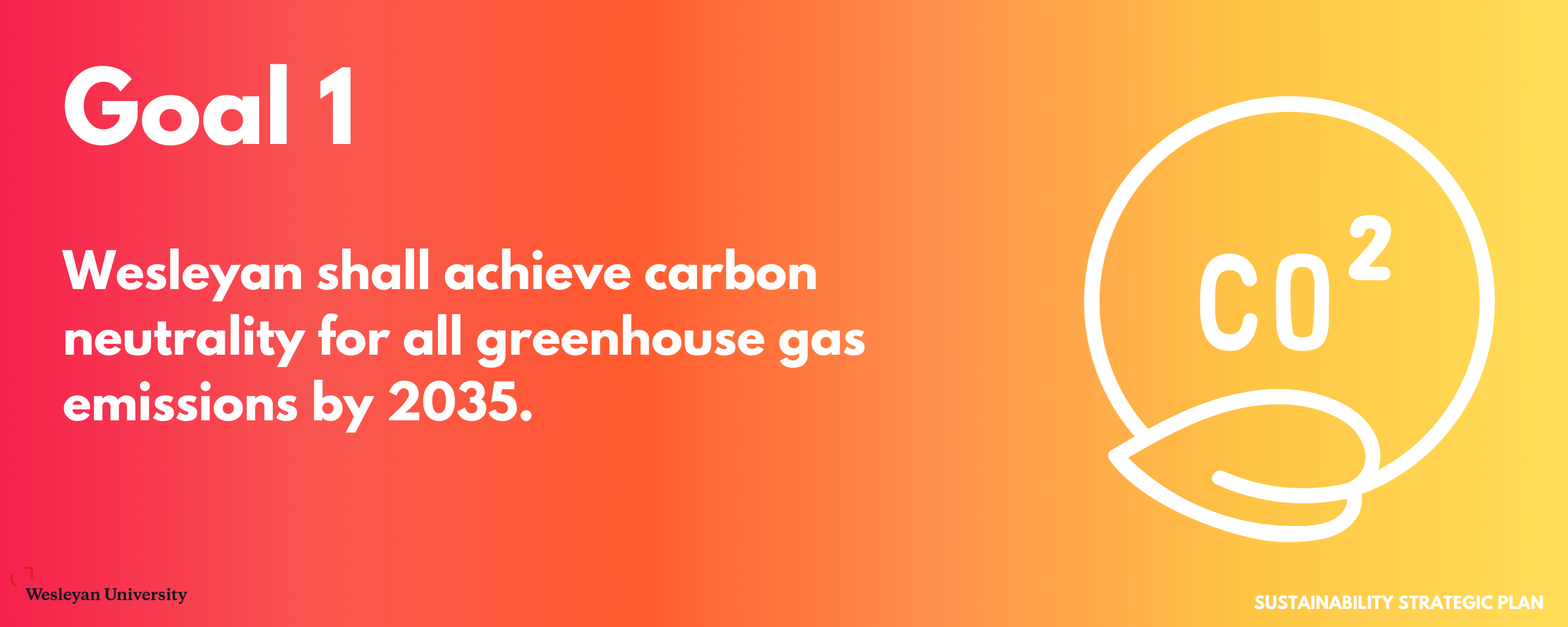
-
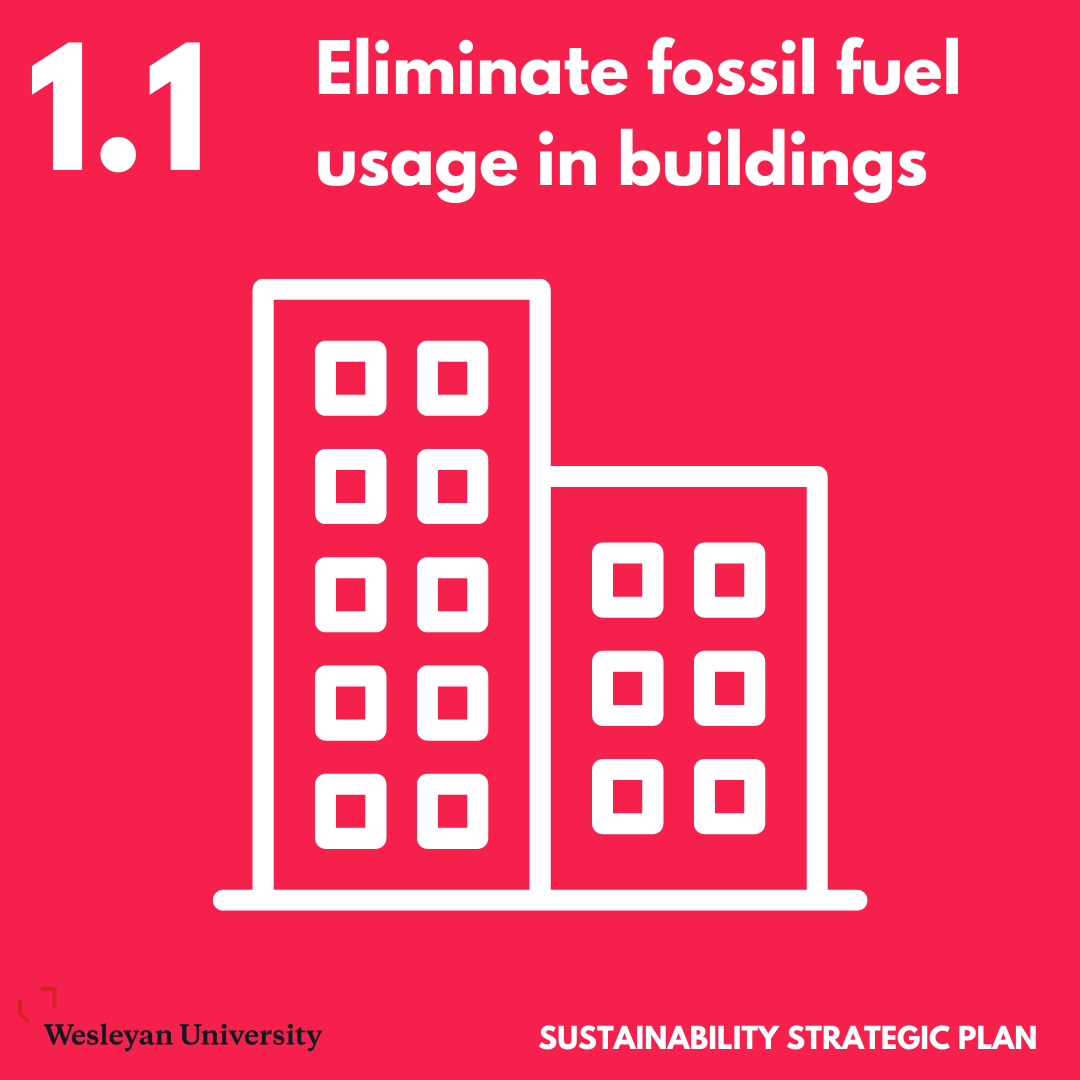
Why: Buildings account for 75-80% of Wesleyan’s carbon footprint
How: We'll need to expand conservation and efficiency efforts, convert our underground energy delivery system from steam to hot water, and convert all buildings to run on renewable energy. Read more in our Utilities Carbon Neutrality Master Plan.
Contact: Andrew Plotkin, Facilities
-
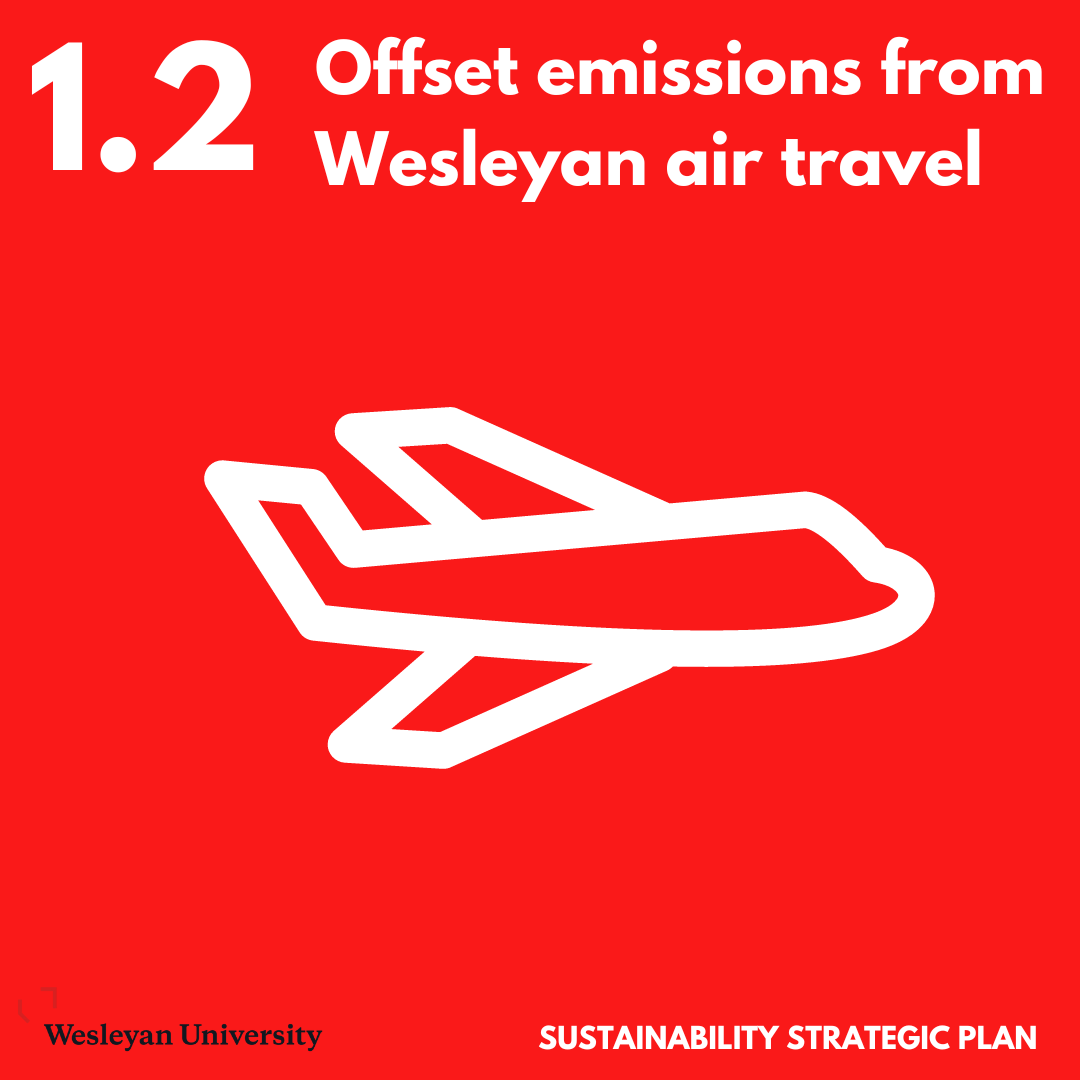
Why: Air travel has historically accounted for 15-20% of Wesleyan’s carbon footprint
How: Offsets are a way of storing carbon or preventing carbon emissions. We're funding these through a fee added to employee air travel purchases and are exploring opportunities to reduce air travel in favor of virtual and ground transportation alternatives.
Contact: Jen Kleindienst, Sustainability Office
-
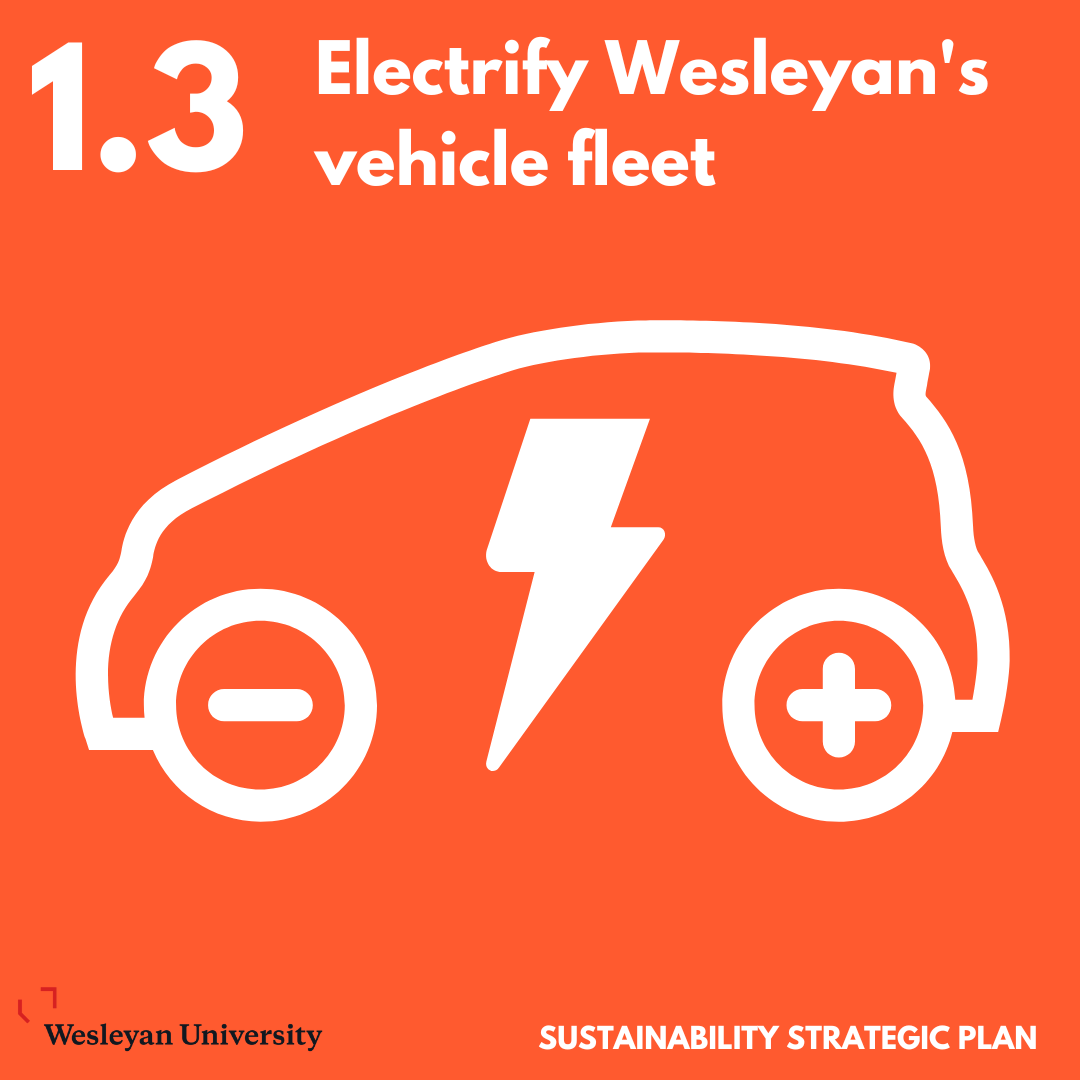
Why: While the campus fleet accounts for less than 5% of Wesleyan’s carbon footprint, transportation emissions as a whole account for nearly 40% of CT emissions
How: We are currently aiming to convert 50% of light-duty vehicles in the campus fleet to electric vehicles and will expand to other vehicle types as vehicles become available.
Contact: Melissa DiMarco, Transportation
-
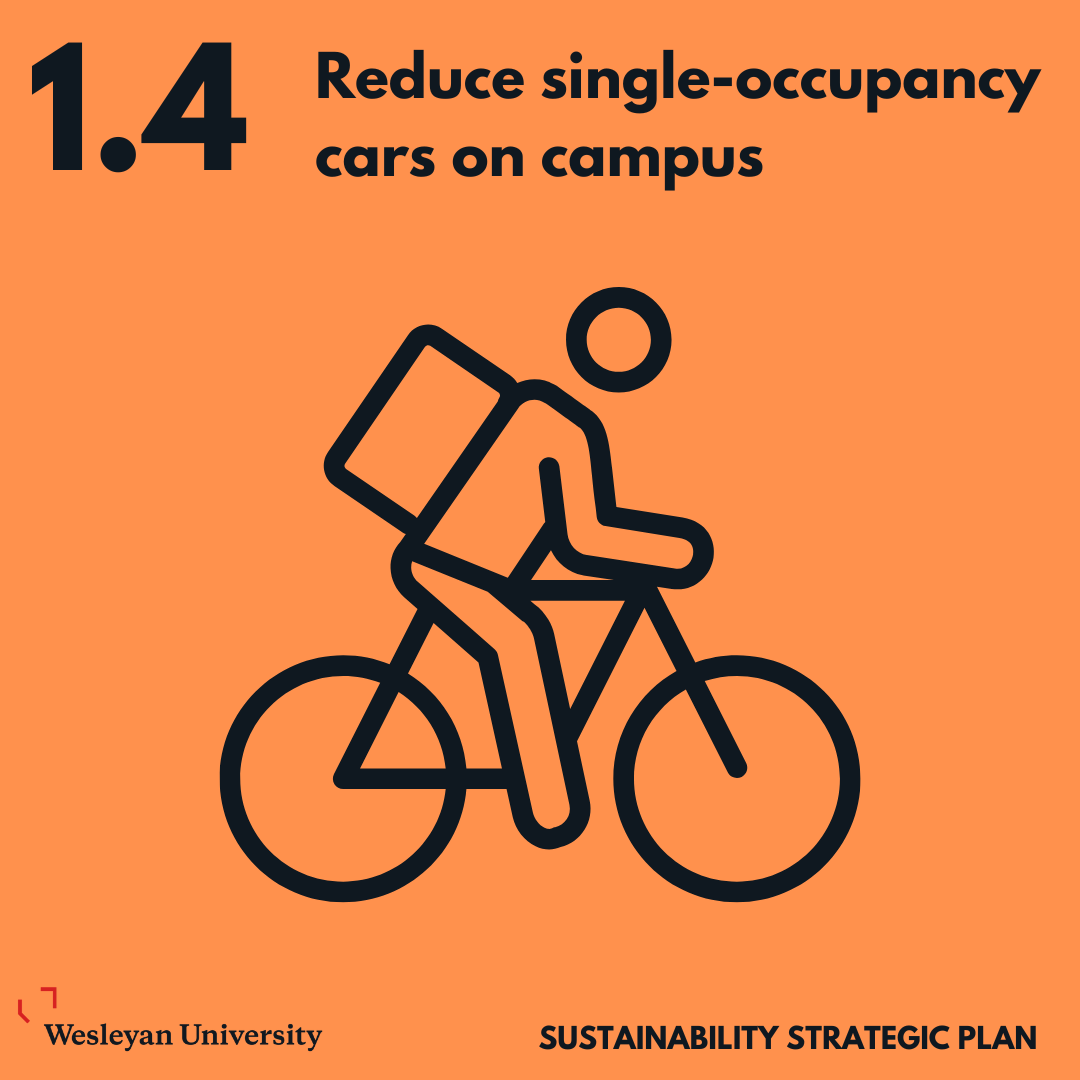
Why: While commuting accounts for less than 5% of Wesleyan’s carbon footprint, transportation emissions as a whole account for nearly 40% of CT emissions
How: We'll do this through promoting working from home, publicizing transit, facilitating carpooling, strengthening walking and biking infrastructure, and expanding electric vehicle charging.
Contact: Jen Kleindienst, Sustainability Office
-
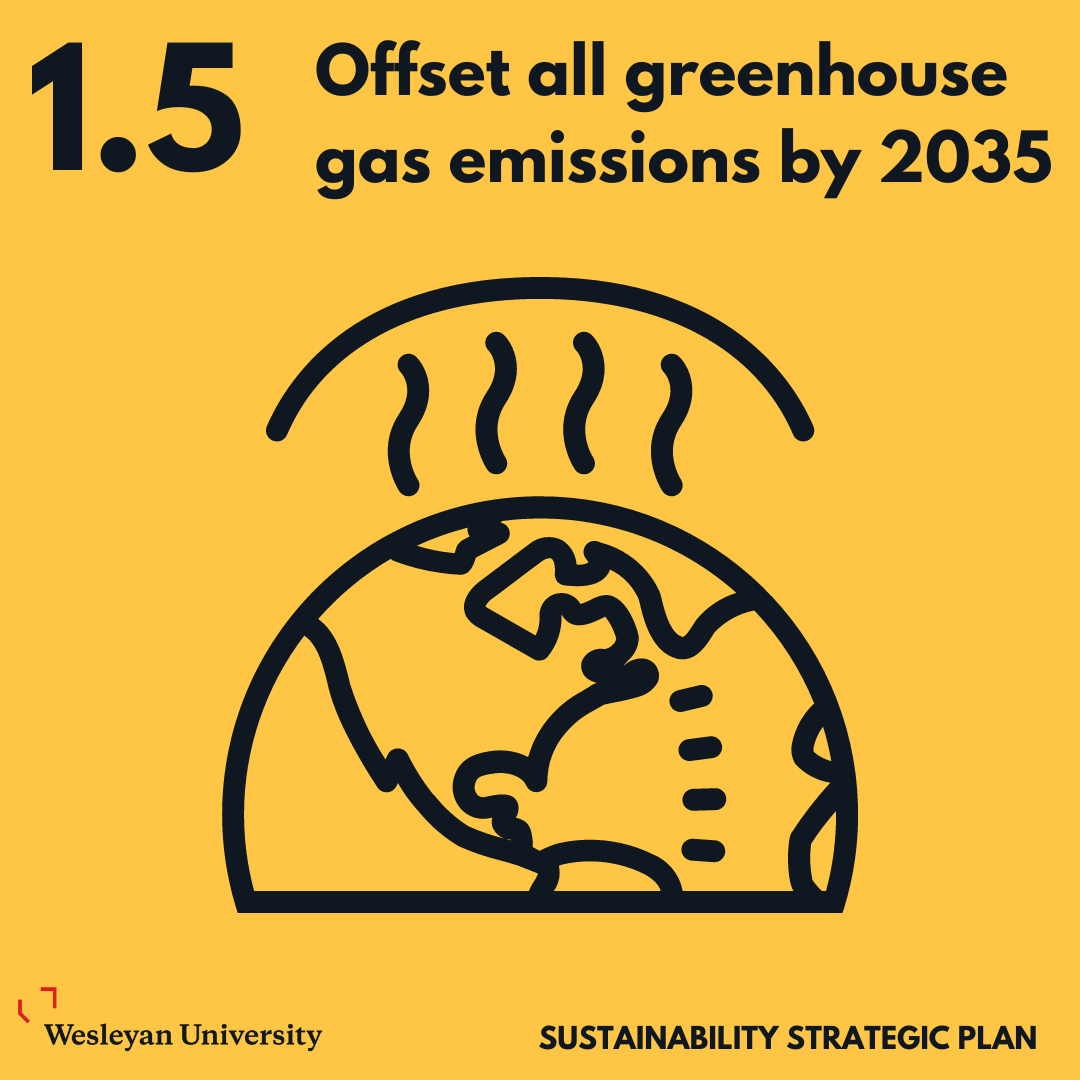
Why: To reach carbon neutrality, some emissions will be unavoidable and will require offset purchases
How: Offsets are a way of storing carbon or preventing carbon emissions. We will not purchase non-air travel offsets until we near our carbon neutrality target, prioritizing instead emissions reduction.
Contact: Jen Kleindienst, Sustainability Office
-
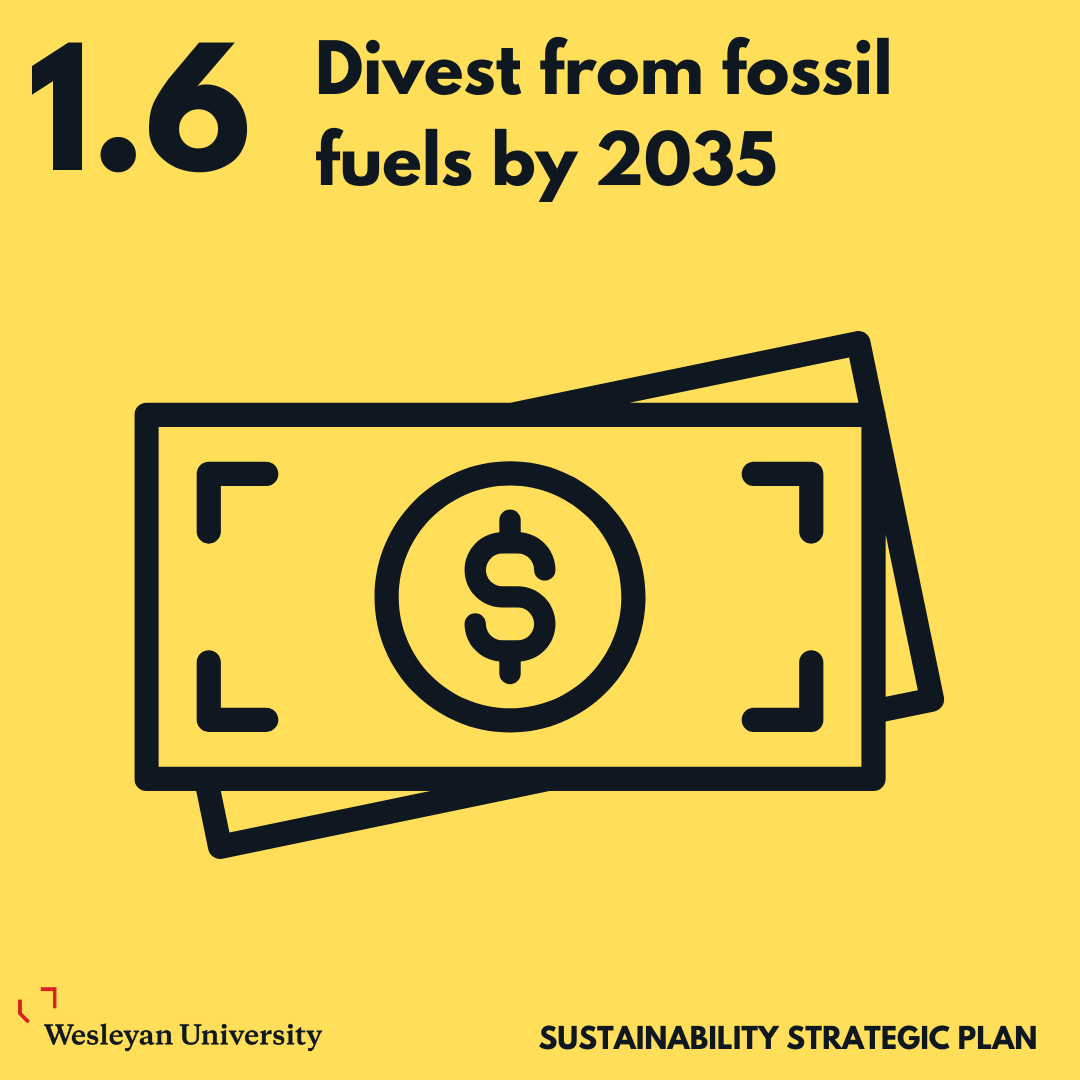
Why: By divesting from fossil fuels, Wesleyan can cchallenge the power of the fossil fuel industry, the primary driver of climate change, and encourage a shift to a clean energy economy
How: Wesleyan expects to divest from all direct fossil fuel investments by 2035 and will continue to explore investments in renewable energy and in businesses that work to address climate change and promote sustainability.
Contact: Brett Salafia, Investments
Curriculum
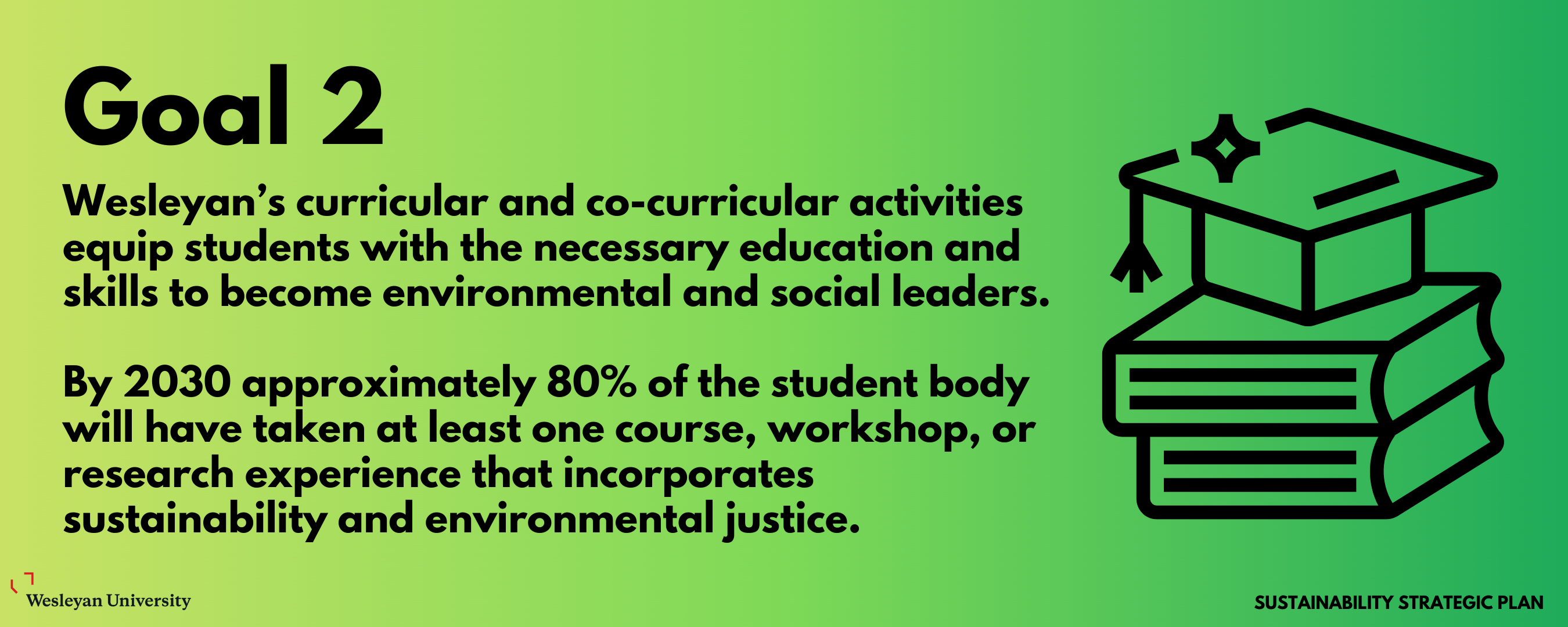
-
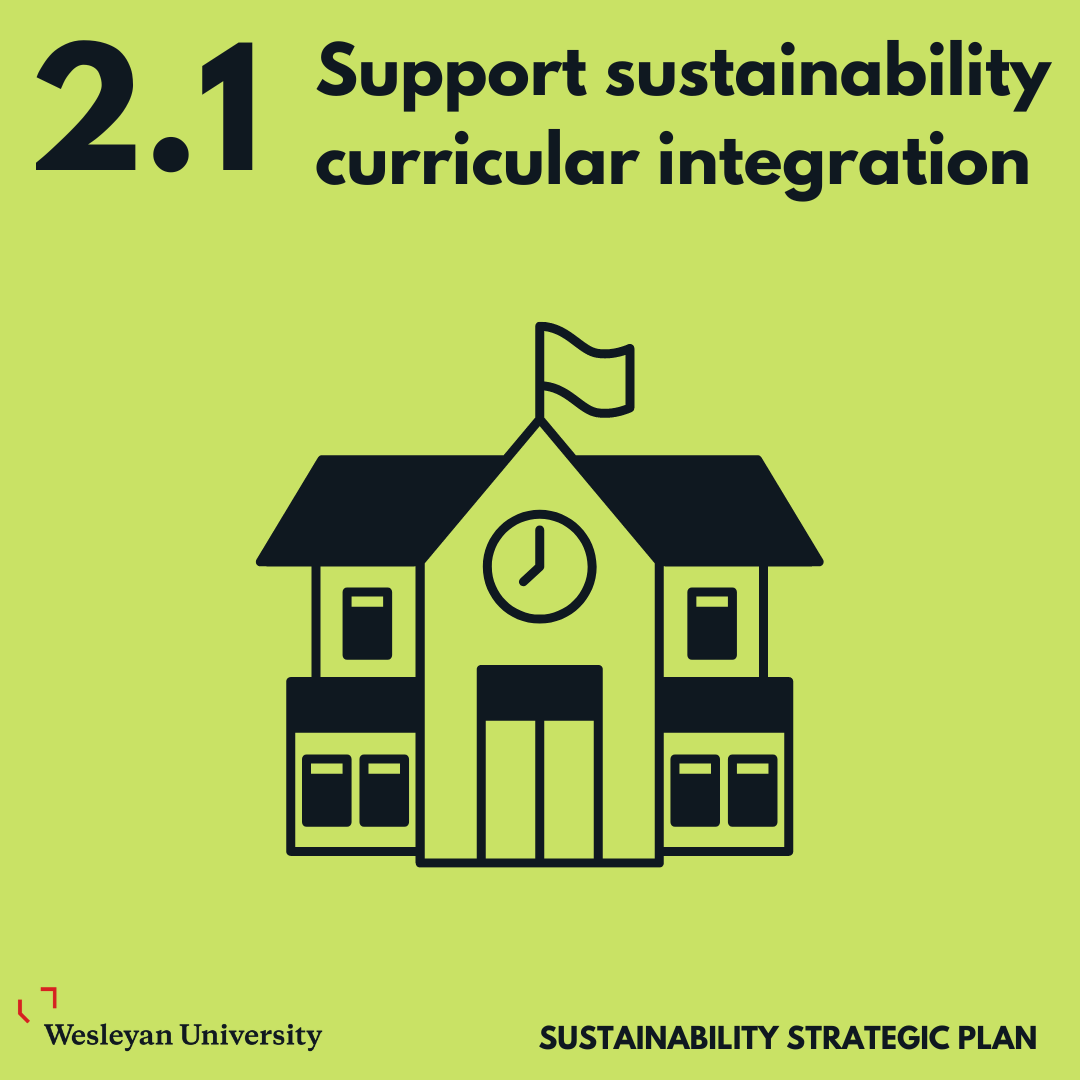
Why: To make sustainability and environmental justice accessible to all students regardless of major
How: We will expand supports for faculty, including training on sustainability and environmental justice and meetings to discuss best practices in course integration.
Contact: Katie Brewer Ball, Assistant Professor in Theater, FGSS; Coordinator, Sustainability and Environmental Justice
-
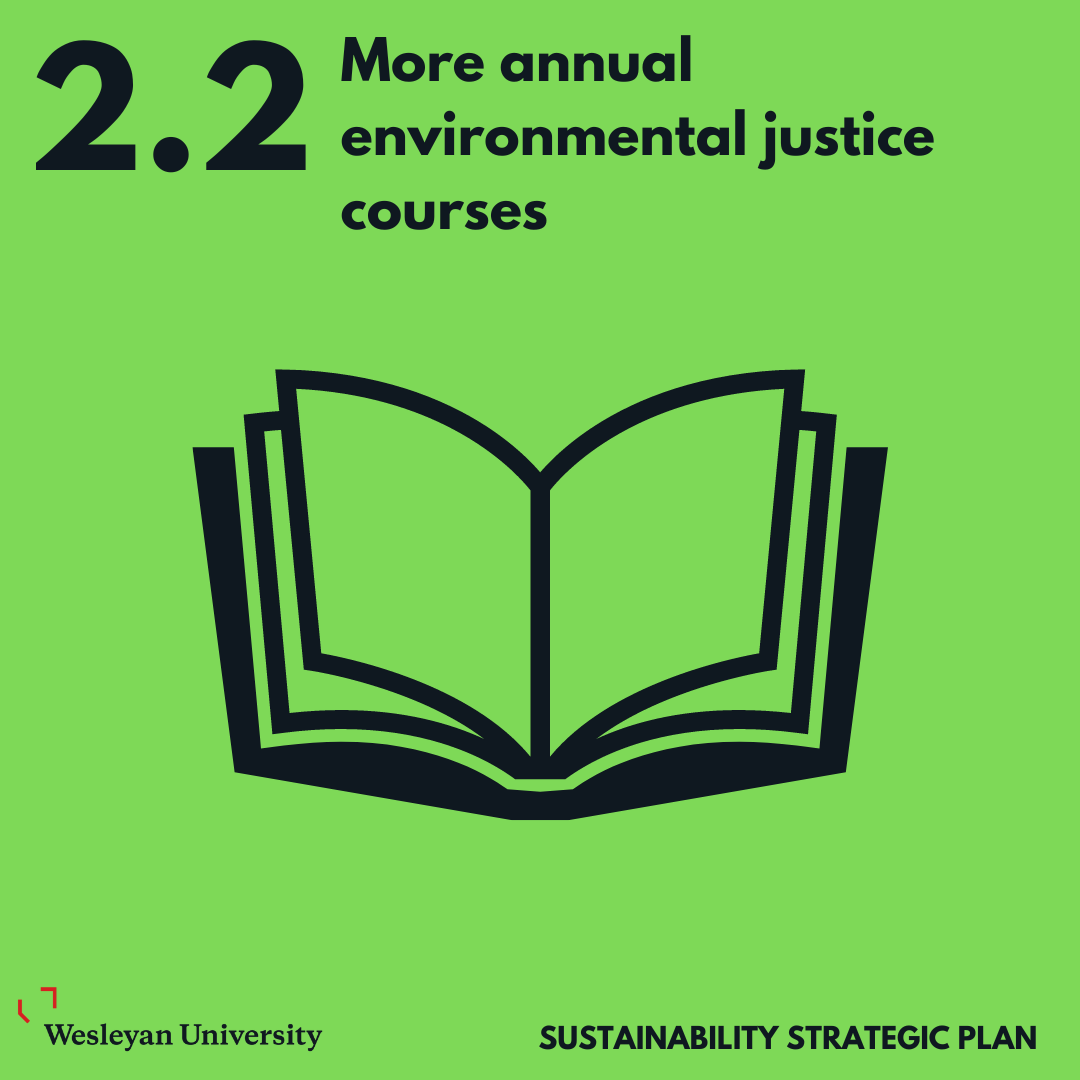
Why: Regular course offerings in environmental justice can introduce more students to the justice contexts of environmental issues such as climate change
How: The College of the Environment will hire a faculty member to teach consistent environmental justice courses through a 5-year grant.
Contact: Barry Chernoff, College of the Environment
-
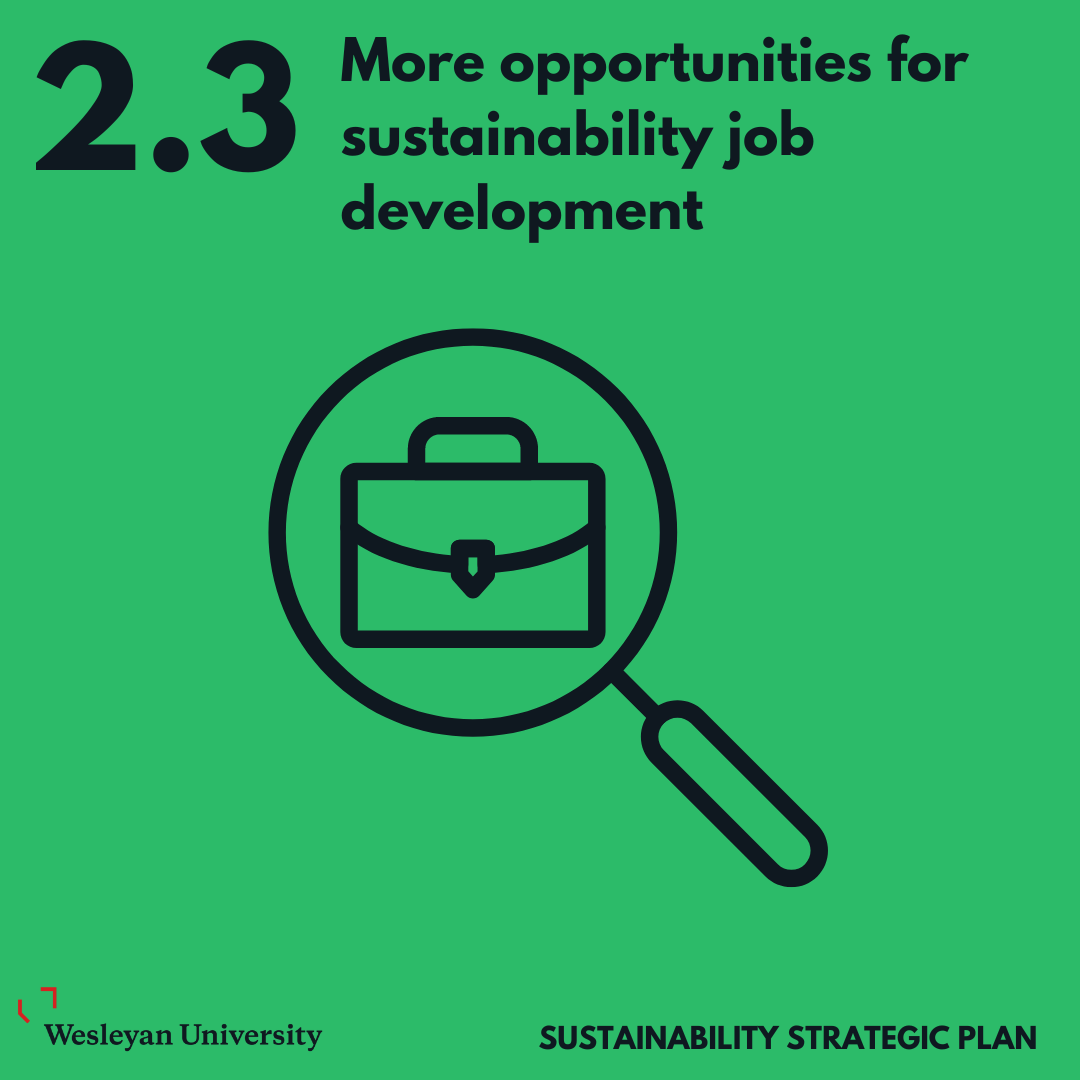
Why: Students looking to pursue summer or post-graduate work in sustainability and environmental justice fields need support
How: This support will include career advising, increased job and internship postings, financial support for internships, and opportunities for students to connect with employers and alumni.
Contact: Ladd Flock, Gordon Career Center
Community
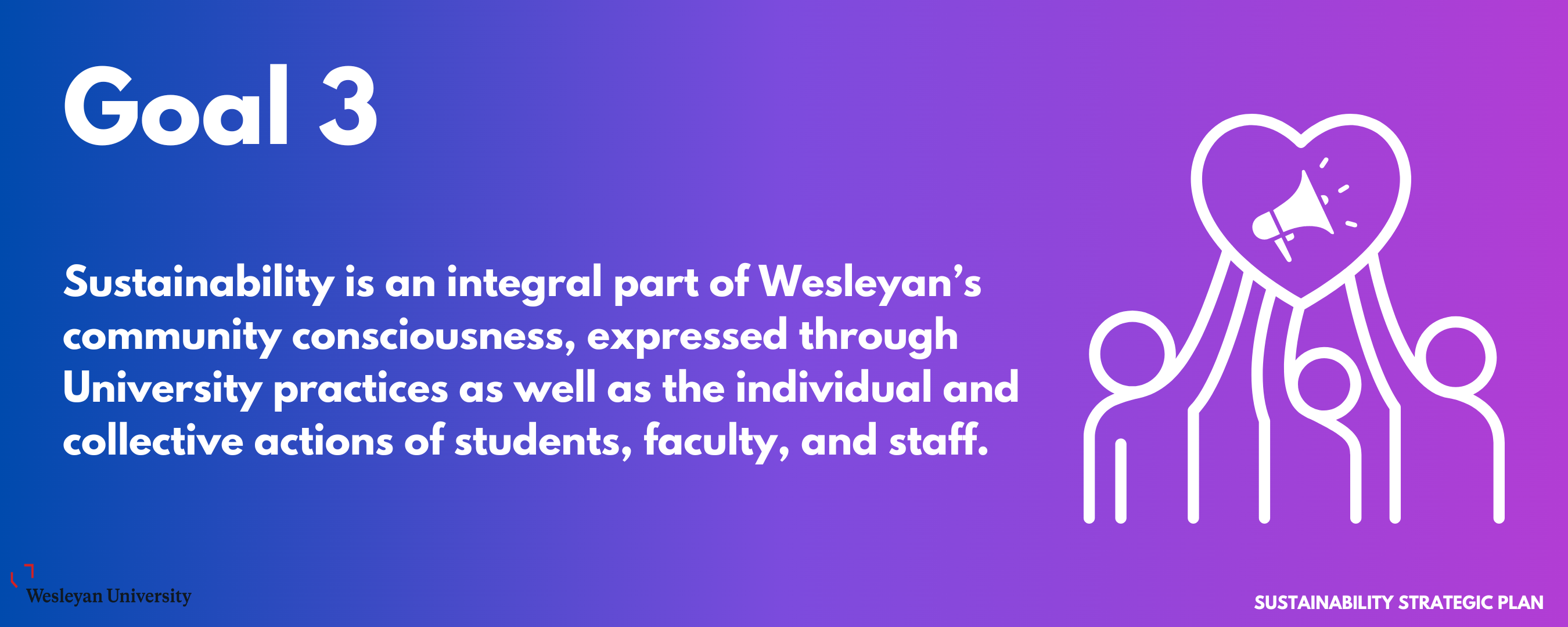
-
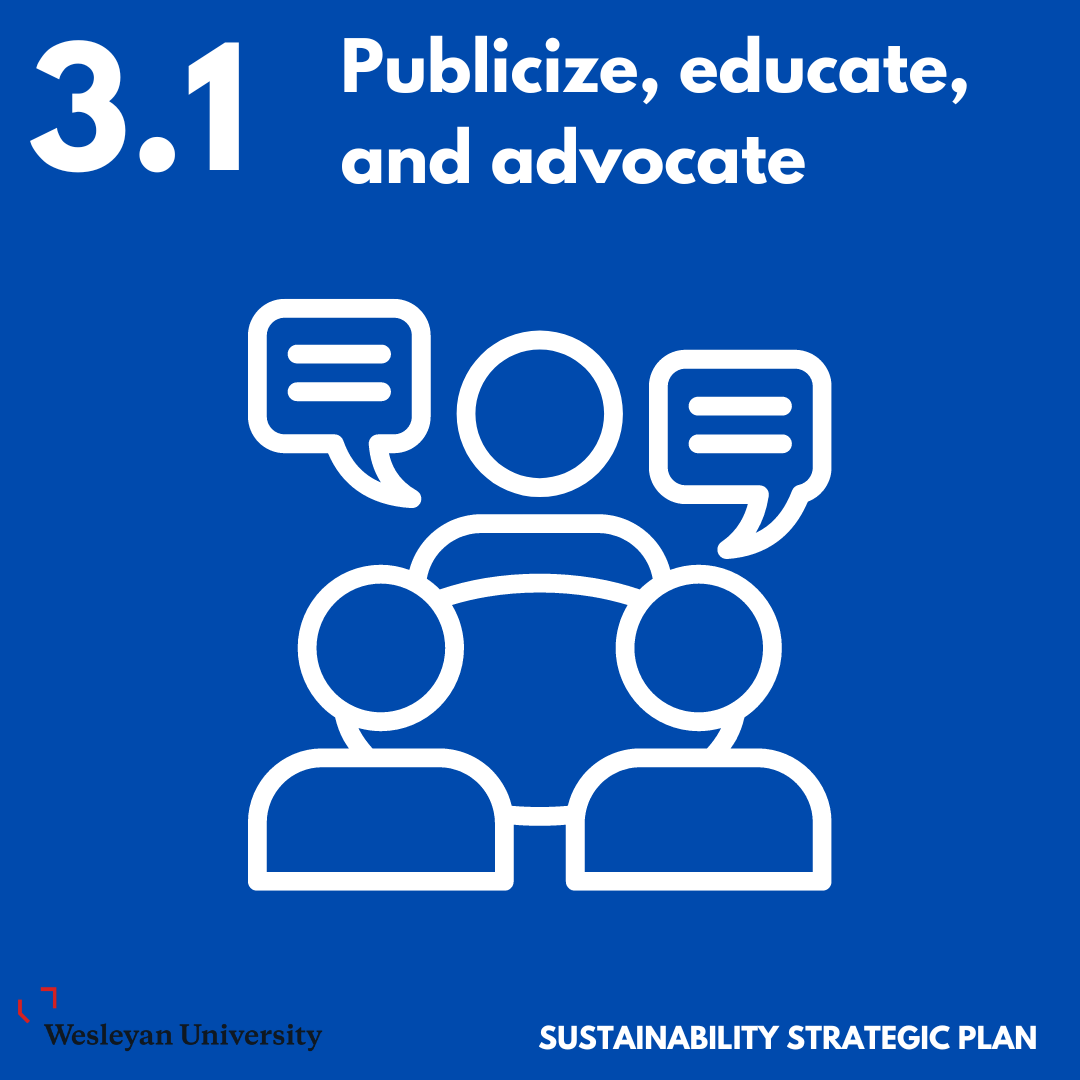
Why: The Wesleyan community needs to be aware of sustainability issues, efforts, and opportunities for involvement
How: We will develop and expand continual education and outreach that acknowledges, listens to, and collaborates with marginalized members of our community. This will include increasing the presence of sustainability and environmental justice in extracurricular activities and programming and encouraging civic engagement on sustainability in the context of equity.
Contact: Jen Kleindienst, Sustainability Office
-
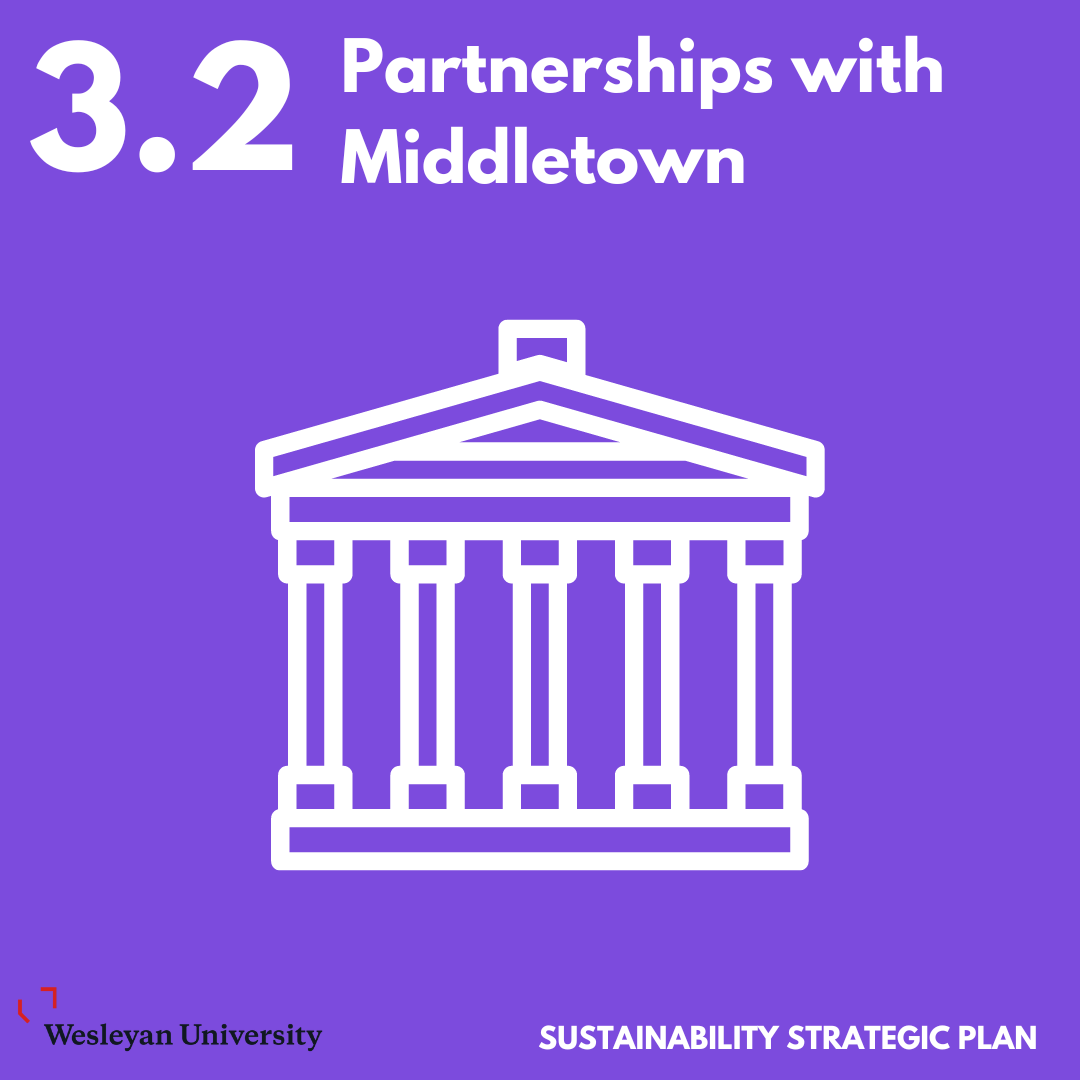
Why: To reach collective sustainability and environmental justice goals, build a resilient community and strengthen town-gown relations
How: We will listen to the needs of the diverse communities in Middletown; provide physical, financial, and intellectual resources to support sustainability and environmental justice at the local level, and institutionalize partnerships.
Contact: Clifton Watson, Jewett Center for Community Partnerships
-
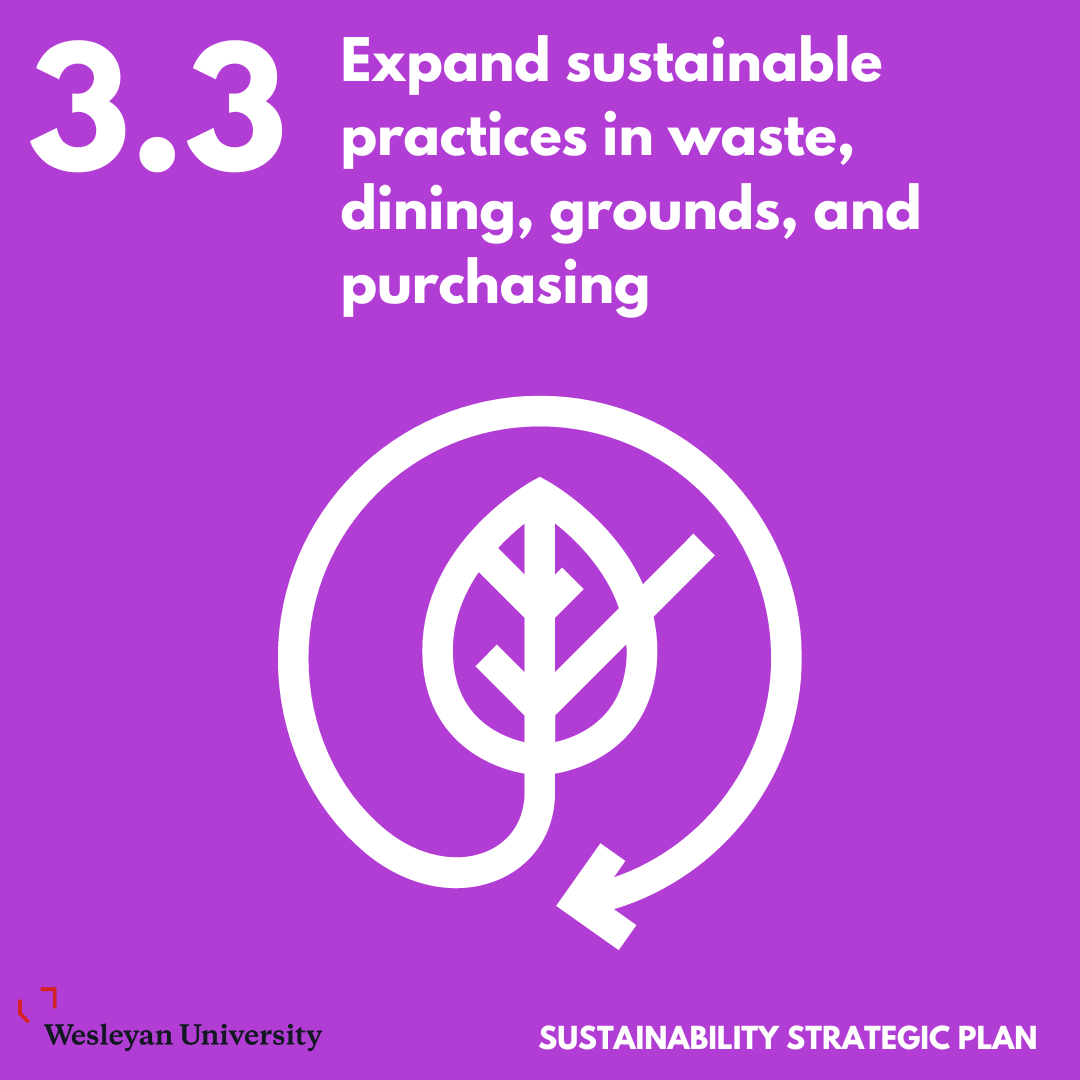
Why: We want our consumption and other physical impacts to reflect the values of prioritizing sustainability and justice
How: We will make physical changes in the areas of dining, purchasing, grounds, and waste to reduce our impact.
Contacts:
-
Waste: Jeff Sweet, Facilities
-
Dining: Michelle Myers-Brown, Usdan
-
Grounds: Victor Diaz, Facilities
-
Procurement: Catherine Kost, Purchasing
-
Sustainability Strategic Plan Committee Members
The following staff, faculty, and students shepherd the implementation of the Sustainability Strategic Plan. Meetings are held 1-2 times each semester. Please contact Jen Kleindienst with questions about the committee.
- Current Members
- Ashlynn Adams '29, WSA (2025-present)
- Aviva Branoff '26, Sunrise (2024-present)
- Katie Brewer Ball, Faculty (2025-present)
- Barry Chernoff, Bailey College of the Environment (2021-present)
- Asper Cisse '28, WSA (2024-present)
- Victor Diaz, Grounds (2023-present)
- Melissa DiMarco, Transportation (2024-present)
- Ladd Flock, Careers (2025-present)
- Jen Kleindienst, Sustainability Office (chair, 2021-present)
- Catherine Kost, Purchasing (2024-present)
- Michelle Myers-Brown, Dining (2023-present)
- Maya Nelson '27, Sunrise (2025-present)
- Andrew Plotkin, Facilities (2021-present)
- Brett Salafia, Investments (2021-present)
- Jeff Sweet, Facilities (2023-present)
- Past Members
- Morgan Keller, International Student Services (2023-2025)
- Camille McGadney, Gordon Career Center (2024-2025)
- Thalia Witkovsky '27, ESN (2024-2025)
- Elan Abrell, Faculty at large (2023-2025)
- Olga Bookas, Purchasing (2023-2025)
- B Frankenstein '25, ESN (2024-2025)
- Leo Heller '25, WSA (2024-2025)
- Aishlinn Parrinello '27 (2024-2025)
- Diana Martinez, Allbritton (2021-2024)
- Dylan Campos, Sunrise Wesleyan (2023-2024)
- Ruthann Coyote, Gordon Career Center (2023-2024)
- Tamira Le, Sunrise Wesleyan (2023-2024)
- Judy Liu, Wesleyan Student Assembly (2023-2024)
- Jeff Murphy, Facilities (2023-2024)
- Debbra Goh, Student at large (2021-2024)
- Lisa Brommer, Human Resources (2021-2023)
- Sun Chyung, Finance (2021-2023)
- Ruby Clarke, Wesleyan Student Assembly (2021-2023)
- Tony Hatch, Faculty at large (2021-2023)
- Mark Hovey, Academic Affairs (2021-2023)
- Fran Koerting, Student Affairs (2021-2023)
